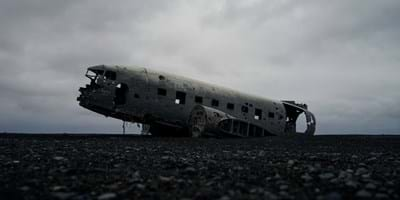What hope and zeal it would stir up within our hearts if we dwelt more on our heavenly home, the place where we will be forever with the Lord, which is “far better” (Philippians 1:23)!
As we look at and live in this world, so deeply affected by the curse of sin and death, we are reminded that this world is not our home. Yet, only when our perspective is altered to view our present circumstances through the eyes of eternity, and in light of God’s sovereign plan, can we begin to understand even our deepest and most painful trials as “light affliction, which is but for a moment” (2 Corinthians 4:17). More than that, suffering is not only the tool that God graciously uses to conform us more to the image of His Son, but is simultaneously the means of “working for us a far more exceeding and eternal weight of glory” (2 Corinthians 4:17).
Believer, we may be hard-pressed on every side, as Paul expresses it to the Corinthian Christians; yet we are not crushed. Perplexed? So often, yet we do not despair. Persecuted and weighed down with suffering? Yes, yet we are not forsaken. Struck down and discouraged? Certainly, yet we are not destroyed. How can this be true? Because of this reality: “we desire a better, that is, a heavenly country” (Hebrews 11:16).
C. S. Lewis emphasises this: “I must keep alive in myself the desire for my true country . . . I must make it the main object of life to press on to that other country and to help others to do the same” (Mere Christianity, p.137) The desire for our heavenly home should be so strong within us that it not only guides our daily reactions and thoughts, but also inspires and challenges those around us to press on to that glorious day and country.
For example, a renewed desire for our true country would awaken within us a new sense of urgency for the people around us who are dying without Christ. It would also allow illness and even the prospect of death to be understood as a means of growing in anticipation of the heavenly body that will never die (1 Corinthians 15:53-54). Fear and uncertainty would be replaced by the certainty of our future home, the city of God which He has prepared for us (Hebrews 11:16). Apathy and laziness would be challenged as we remind ourselves of the eternal, imperishable prize for which we are striving, knowing that only what’s done for Christ will last. Loneliness and separation would increase our yearning for the fullness of joy that is found in God’s presence, pointing us to the day when we shall be forever with the Lord, face to face.
Let us run, then, with certainty and focus. Not aimlessly “[beating] the air” (1 Corinthians 9:26) without directed purpose, but rather fixing our minds on the “imperishable crown” (9:25) that is to come. God’s Word says that: “Eye has not seen, nor ear heard, nor have entered into the heart of man, the things which God has prepared for those who love Him” (1 Corinthians 2:9). Do not pass over the depth of that promise. While we are tempted to seek acceptance, success, pleasure and meaning in this world, the reality of that promise should change the Christian’s focus: what is laid up for us in heaven is utterly inconceivable compared to anything we can know or experience on this earth.
Believer, the shoreline of heaven draws closer each day; may we not lose sight of it. Whatever is pressing in on every side today, let us look forward to, and grow in anticipation of, that day:
“No more burdens to bear,
No more sickness, no more pain,
No more parting over there.
And forever I will be,
With the One who died for me.”
(Jim Hill)
Oh, what a day that will be, when our Saviour we shall see!


































